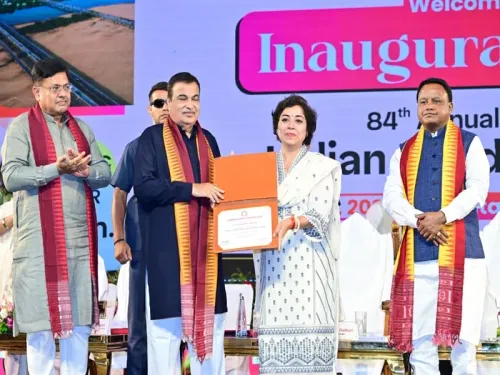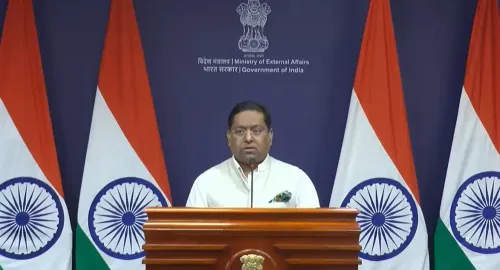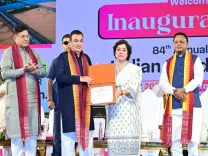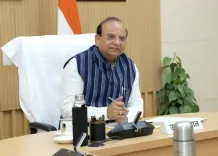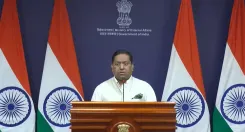Raghav Chadha Advocates for India as AI Producer Through 'Make AI in India' Initiative
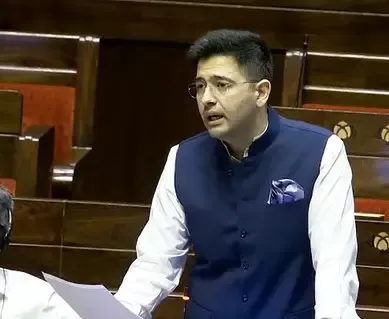
Synopsis
Key Takeaways
- Raghav Chadha emphasizes AI's importance for India's future.
- India currently holds only 0.5% of global AI patents.
- Proposed initiatives include developing indigenous AI chips.
- Need to retain top AI talent within India.
- Investment in AI research must significantly increase.
New Delhi, March 25 (NationPress) Aam Aadmi Party (AAP)'s Rajya Sabha member Raghav Chadha on Tuesday highlighted the necessity to broaden the 'Make in India' initiative to incorporate Artificial Intelligence (AI), aiming to reinforce the nation's growth trajectory over the coming decades.
While addressing the House, the AAP lawmaker emphasized that AI is a vital topic for the 'India of tomorrow'. He pointed out that while global superpowers have made substantial advancements in AI technology, India has yet to carve out a significant role in this domain.
Chadha noted that in the ongoing AI revolution, the United States boasts indigenous models like ChatGPT, Gemini, Anthropic, and Grok, while China has developed some of the most efficient and cost-effective AI models, such as DeepSeek. He questioned, 'Where does India stand in this AI era? Are we falling behind? Will India not be capable of creating its own generative AI model?'
He pointed out that from 2010 to 2022, the US contributed to 60 percent of AI patents globally, while China accounted for 20 percent. In contrast, India, despite being the fifth-largest economy worldwide, secured a mere 0.5 percent of global AI patents.
Chadha acknowledged that the US and China have gained a significant lead of four to five years in AI advancements due to substantial investments in research, academia, and AI infrastructure.
'A very large population of India is part of the AI workforce. It is said that Indians make up 15 percent of the total AI workforce, with 4.5 lakh Indians employed as AI professionals abroad,' he stated.
'India ranks third in terms of the highest penetration of AI scale, indicating that the country possesses talent, dedicated individuals, intellectual resources, a digital economy, and over 90 crore internet users. However, India has become an AI consumer rather than a producer,' he added.
Chadha also referenced remarks from OpenAI founder Sam Altman, who purportedly deemed India's AI prospects as 'completely hopeless.'
'It is time for us to respond, and India must emerge as an AI producer in this age of AI, not merely an AI consumer,' he asserted.
To establish India as an AI leader, Chadha proposed several critical initiatives, including the development of indigenous AI chips, initiating domestic chip manufacturing, creating a dedicated AI infrastructure fund, providing AI research grants, and offering tax incentives for AI.
He also highlighted the importance of retaining talent by ensuring that elite Indian AI professionals find opportunities within the country rather than seeking them abroad.
Furthermore, he urged the government to grant local AI startups access to extensive data resources, currently monopolized by global technology giants like Microsoft and Google, enabling Indian firms to develop competitive AI solutions.
'Lastly, we must enhance financial investment. The US allocates 3.5 percent of its GDP to AI research, China invests 2.5 percent, while India spends only 0.7 percent. In the future, the one who masters AI will dominate globally. Hence, India needs to advance both 'Make in India' and 'Make AI in India',' Chadha concluded.

